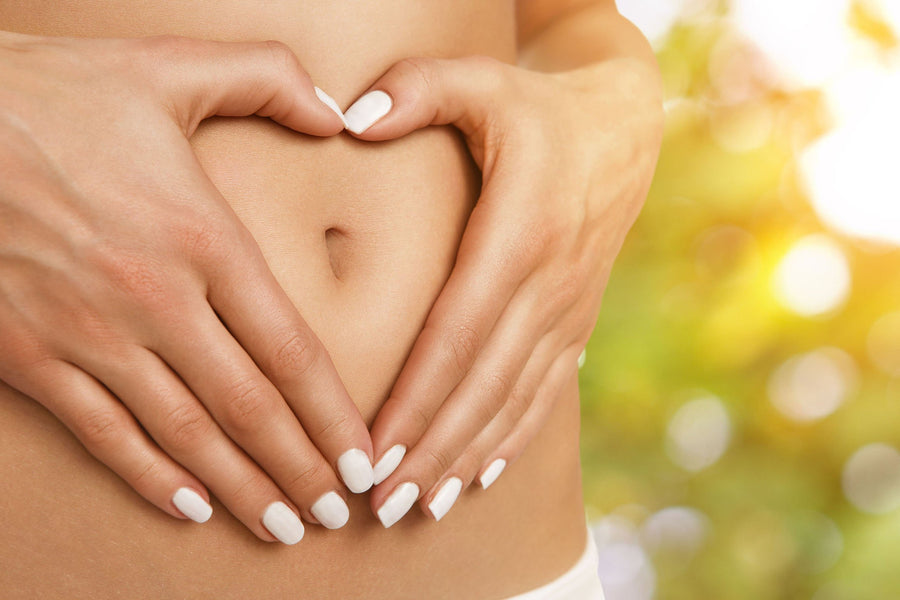
The other day I found myself in an unusually bad mood. It was witching hour in my house – the time when I try to cook my family dinner while my “threenager” toddler is whining, my 8-week-old baby is in need of a cuddle before taking a nap, and I’m feeling ravenous. I usually approach this time of day as a lively challenge and I enjoy coming up with novel ways to handle it, but on this occasion it was all too much. I was overwhelmed, anxious and snappy.
One explanation for my moodiness is that I had a bad case of the “hangries” – a treacherous combination of feeling hungry and angry, which, as I’ve written about before, is in part due to the effect of the of the appetite hormone ghrelin (or gremlin as I like to call it). This is a chemical produced in the “second brain” in your gut – an intricate network of up to 600 million neurons officially called the enteric nervous system. It’s nicknamed the second brain because while it talks to the brain, it also has the ability to act independently and influence your behavior.
While the remedy for the hangries is relatively straight forward (eat something), the new science of gut-mood interconnectedness is anything but. This two-way conversation between the brain in your head and the brain in your gut is not the only frontier being explored by leading researchers. It turns out these “conversations” are actually more like a teleconference that includes not only your brain and your gut, but also the bugs living in your gut.
It is thought that up to 100 trillion microbes call the human gut home. These minuscule organisms can both receive and make signals that can get passed to and from your brain. Your brain can influence the populations in your gut and certain species can talk back and influence your mood and behavior.
To date, most of the research into how gut bugs affect mood has been conducted on mice. For instance, feeding mice the bacteria Lactobacillus rhamnosus made them less stressed and reduced depressive behaviors when they are forced to swim after being dropped in water. Another species called Lactobacillus reuteri promoted the release of oxytocin in mice – the so-called cuddle or bonding hormone, shown to give the animals a ‘glow of health.’ One fascinating study demonstrated that baby mice with symptoms that resemble autism in humans have had those symptoms reverse after being given Bacteroides fragilis, suggesting (at least in this mouse model), that the symptoms of autism may be reversible with probiotic therapy.
There have been some studies on people too. Drinking a probiotic mixture containing Lactobacillus helveticus and B. longum for 30-days has beneficial effects on anxiety and depressive measures, as well as reduced levels of the stress hormone, cortisol. Healthy women who drank a fermented milk product containing four particular species of bacteria (Bifidobacterium animalis, Streptococcus thermophilus, Lactobacillus bulgaricus and Lactococcus lactis) for four weeks were shown to have alterations in brain regions that control emotion and pain sensation.
With all this in mind, after witching-hour had passed, the kids were in bed and I had satiated my appetite, I got thinking about these findings and wondering if I could simply take a pill containing some good bacteria to lift my mood. It turns out that these tentative steps in identifying a microbrobe-mood link do come with exciting possibilities for new approaches to improving mental health, with researchers recognising the infinite possibilities of using “psychobiotics” (supplemented probiotic bacteria), especially in the treatment of mental illnesses ranging from anxiety, to depression and even schizophrenia.
But, like with so much that I write about when it comes to the science of the mind-body-health connection, it’s too early to say whether we can use antibiotics to annihilate the bad bacteria and probiotics to replenish the good bacteria. In fact, a recent systematic review which looked at psychobiotic research concluded that, “Overall, there is very limited evidence for the efficacy of probiotic interventions in psychological outcomes.” So, despite the fact that you can find all manner of products promoting the health benefits of different microbial species on supermarket and pharmacy shelves (an industry predicted to be worth US$96 billion by 2020), it’s unlikely that the probiotics used in scientific trials are the same probiotics you’re buying at your local shops. Scientists don’t even yet know what exactly constitutes a “normal” or “healthy” microbiome.
Fortunately, the promise of the microbiome and it’s potential for health has caught the attention of some important movers and shakers. The US Government recently announced a $121 million initiative to support more microbiome research over the next 12 months and the European Union has launched a project called MyNewGut which is specifically investigating the gut-brain connection, so we can expect more exciting discoveries in the future.
In the meantime, there is something we can take away from all of this right now. Researchers are beginning to think that it’s not about trying to somehow replenish more specific species of good bacteria, but rather about maintaining a healthy balance of the species. It’s the people who lack diversity in their microbiomes who seem to be vulnerable to poor health. So rather than recommending and espousing the benefits of particular supplements or clinical procedures, experts recommend working on cultivating gut bug diversity. The accumulating evidence suggests the way to do this is by eating a long-term, highly diverse, high fibre diet. By eating a wide variety of fibrous plants, we are essentially feeding and encouraging a thriving, diverse population of good bugs.





 The Connection (DOWNLOAD-TO-OWN)
The Connection (DOWNLOAD-TO-OWN) My Year Of Living Mindfully - Book
My Year Of Living Mindfully - Book




